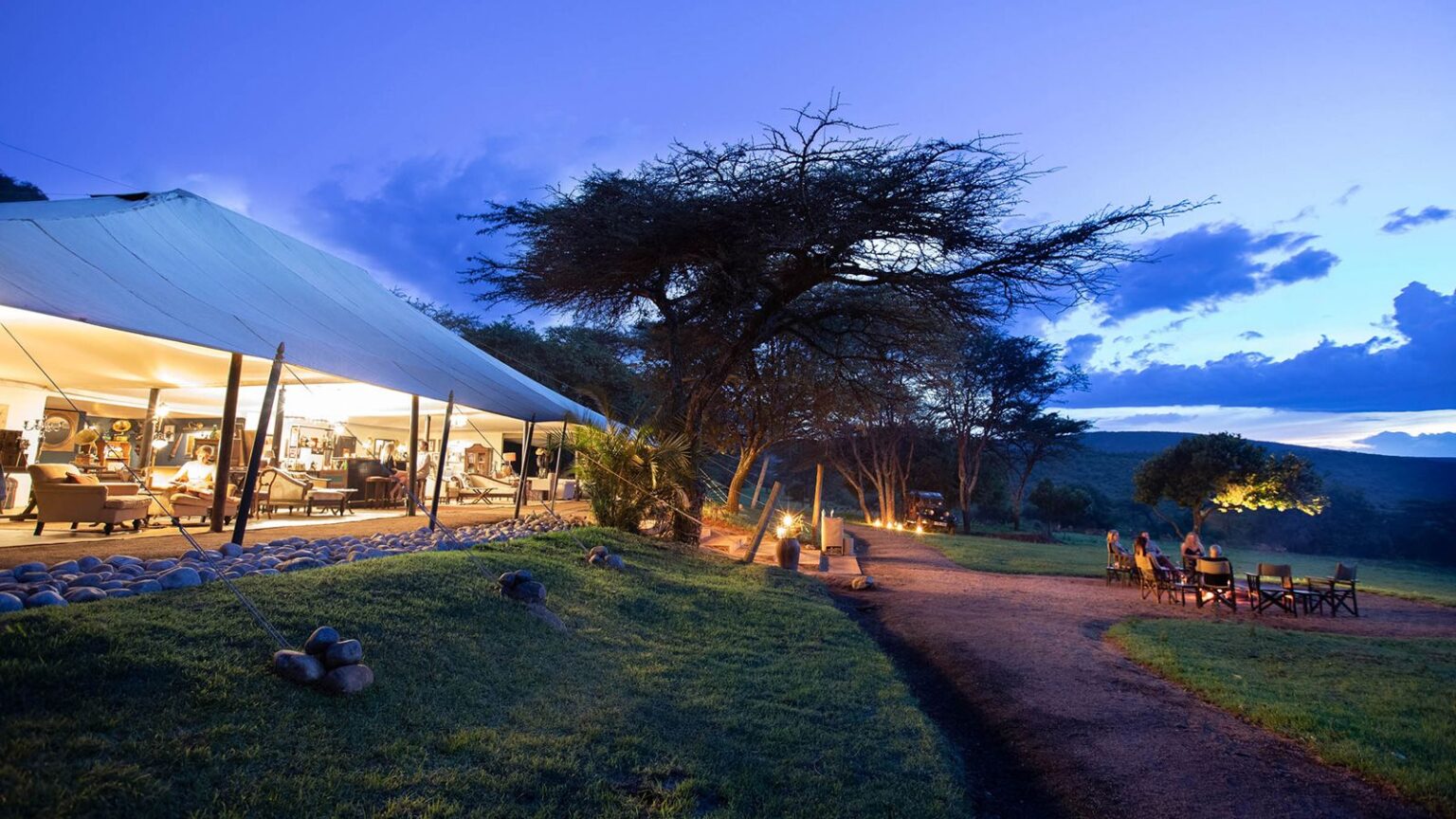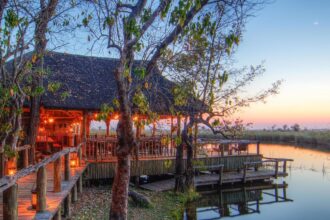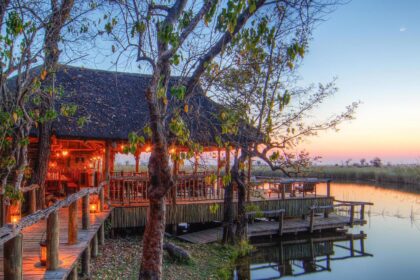At a Glance
- Cottar’s 1920s Camp trades colonial nostalgia for ethical, community-driven safari tourism.
- The new conservation model leases Maasai land, protecting wildlife while empowering locals.
- Luxury meets purpose: guests fund land equity, cultural exchange, and ecological preservation
In Kenya’s iconic Masai Mara, a century-old luxury safari lodge is confronting its colonial legacy while reimagining the future of high-end travel.
Cottar’s 1920s Camp, one of the oldest and most prestigious safari camps in East Africa, is renowned for its Edwardian-era elegance — from vintage leather furniture and mahogany bars to open-air canvas baths.
Yet behind the antique charm lies a deeper mission: transforming the safari narrative into one that prioritizes ethical tourism, community partnerships, and land preservation.
Originally founded by American big-game hunters, the Cottar legacy spans generations of bushmen, royalty hosts, and wildlife pioneers.
Today, Calvin Cottar, the family’s current steward, is taking the camp far beyond its colonial past.
As global conversations around representation and post-colonial identity reshape travel and tourism, Cottar’s 1920s Camp is becoming a touchpoint in the evolution of Africa’s luxury safari sector — one that respects heritage while shifting toward sustainability and social equity.
Still frequented by film stars, global elites, and royalty, the camp offers more than cinematic views and five-star safari experiences.
It has also become a platform for meaningful engagement with local Maasai communities.
Through biodiversity easements and indigenous-led conservation efforts, the camp now supports a growing model of land sharing, rather than land ownership — a sharp contrast to the region’s history of exclusionary practices.
But the transition isn’t without its tensions. The decor still leans heavily into 1920s nostalgia, sparking debate among younger Kenyans who view colonial aesthetics as outdated, even offensive.
For Cottar, the juxtaposition is intentional. “There’s still an appetite for the old-world look,” he admits, “but the purpose of maintaining it is to finance long-term solutions to land inequality and wildlife conservation.”
Preserving elegance without erasing history
Guests at Cottar’s 1920s Camp are immersed in a world that channels Out of Africa — minus the lion attacks and malaria.
Inside the open-air mess tent, brass gramophones and antique mirrors complement crystal tumblers and vintage typewriters.
Waiters serve gin and tonics on silver trays, and candlelit dinners are set beneath chandeliers.
The atmosphere is theatrical, deliberate, and indulgent — a colonial-era fantasy carefully preserved for a high-end clientele.
Yet the surrounding bush often reminds visitors that nature still rules here. Eland antelopes crash dinner parties.
Hyenas circle dead waterbucks discovered in the lounge. Calvin Cottar himself frequently shares a drink with wildlife — quite literally — as animals sip from his wine glass by the fire.
While the experience may feel surreal, it also serves as a commentary on the blurred line between spectacle and authenticity in safari tourism.
And for Cottar, navigating that line is critical to both the survival of his business and the ecosystems around it.
Reclaiming land through partnerships, not fences
At the core of the camp’s philosophy is an ambitious shift in how safari land is managed.
Historically, vast swathes of the Masai Mara have been purchased and fenced off by wealthy foreign owners and organizations, disrupting animal migration routes and displacing local communities.
Calvin Cottar is challenging this system with biodiversity easements — a conservation model that leases, rather than buys, Maasai land.
By paying monthly rents to local communities, Cottar helps ensure that wildlife is preserved, not persecuted.
“If a lion dies, that’s less income for the community,” he explains. “So there’s incentive to protect the ecosystem.”
Though his own family once owned extensive acreage, Cottar has divested most of it in favor of this community-centric model.
“White Africans have to change,” he says candidly. “It’s time to stop owning the land and start partnering with those who’ve always lived on it.”
Community-driven conservation and Safari experiences
Every day, local Maasai guides — many of whom now own the very land they work on — lead Cottar’s guests through one of the most biodiverse safari conservancies in Africa.
Lions lounge in the tall grass, cheetahs stalk gazelle in the midday sun, and elephants pose like influencers against savannah skylines.
The experience is intimate, immersive, and far removed from the crowded safari trails of larger parks.
What sets the camp apart, however, is its commitment to cultural engagement.
Guests learn to identify medicinal herbs with traditional healers, track endangered pangolins, and participate in vulture rescue efforts.
Later, under starlit skies, they walk the land on foot — no jeeps, no guides — gaining a visceral understanding of what it means to coexist with nature.
It’s a sensory, thought-provoking safari that transcends game-viewing. And it asks travelers to consider their role in shaping Africa’s tourism future.
New chapter in Kenya’s luxury Safari industry
As safari tourism across East Africa grapples with its colonial roots and the pressures of modernization, Cottar’s 1920s Camp is leading a subtle but significant shift.
Its enduring appeal lies not just in its nostalgic aesthetics, but in its effort to reframe the African safari as a vehicle for economic justice and ecological stewardship.
With land ownership at the heart of the continent’s most pressing debates, the camp offers a rare example of how luxury tourism can be leveraged for good — even as it serves drinks on silver trays and books guests into Edwardian tents.
In the end, the Cottar family’s transformation mirrors that of Kenya itself: rooted in history, complicated by legacy, and now — finally — stepping into a more inclusive future.















